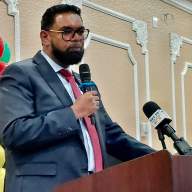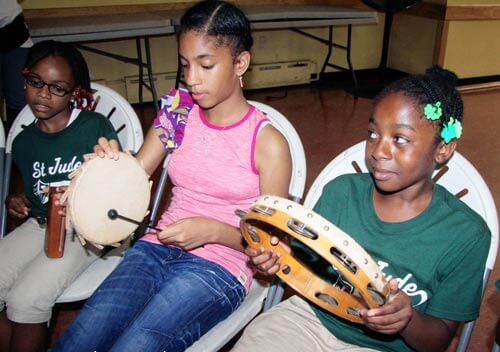They began lining up at 6:00 a.m. and the doors of St. Mary’s Church on the Lower East Side opened about 10:15 a.m., earlier than planned.
Aug. 15 was the first day that DREAMers, undocumented youth, could apply for a temporary work permit and deferred action relief.
On that day, a legal advice clinic organized by New York Immigration Coalition offered preliminary consultations, a pre-screening with volunteer emigration lawyers, to undocumented young adults who arrived in the United States before the age of 15 and were younger than 31.
Flavia is now 23 and has a college degree in merchandise marketing. She arrived at the age of 11 from Bolivia but cannot work, legally.
One attendee, studying computer technology, came from Peru 11 years ago and another, a 27-year-old young man from St. Lucia, works as a deliveryman. They were among the packed consultation room with others from China, Bangladesh, and you-name-the-country, seeking information at this initial pre-screening.
By mid-afternoon, the doors were closed, the legal clinic could not accommodate anymore. Forty lawyers screened approximately 1000 young people during the day.
Max Ahmed, a senior studying chemical engineering at the City College of New York spoke to press as the day began, “Deferred Action will grant some stability for me and over a million young people like me. This policy grants me more than a permit to work or to live here. It allows me to now pursue my dream of contributing to the city and to the country. I want to work on today’s energy problems through my degree in chemical engineering.
City, state and national politicians attended the launch.
Congresswoman Yvette Clarke said, “This great nation, a nation of hardworking immigrants, suffers when good students from our communities are prevented from reaching their full potential. We are all deprived of a better future when we force our young people to grow up in immigration limbo.”
Before seeing the volunteer lawyers, attendees waited in the church sanctuary and were filled with questions: I didn’t graduate high school, is this a problem? Response: Get your GED. Can I get a driver’s license? Can I travel outside the country? How do I submit the paper work and do I need a lawyer? The paper work is tricky, legal assistance is probably necessary.
One lawyer came across hurdles such as proof of continuously in the country for five years–a requirement–if you weren’t in school (bank or medical records) and what is the impact of an arrest without a disposition.
Each attendee made a follow-up one-on-one appointment after their initial lawyer meeting.
When leaving, one young man voiced concern over the temporary nature of this deferred action: What happens if they stop this program, are you vulnerable to deportation? And if you apply, do you expose your undocumented parents?
Because the response to this legal clinic was so overwhelming, New York Immigration Coalition will organize another clinic. Check their website: www.thenyic.org.
DREAM is an acronym for Development, Relief, and Education for Alien Minors, an act that never got traction in Congress. Obama signed a version, as a presidential executive order, Obama June 15, 2012.
Applications must be mailed. They include a deportation deferral request and separate forms for a work permit. All support documents must be in order; there are no appeals.
New York City Council announced that it set aside $3 million for free legal services through community organizations.
Those who meet the eligibility requirements will receive deferred action for two years, subject to renewal, and will be eligible to apply for work authorization. It is estimated that as many as 1.7 million immigrants are eligible for deferrals.
























